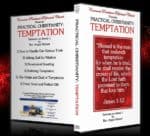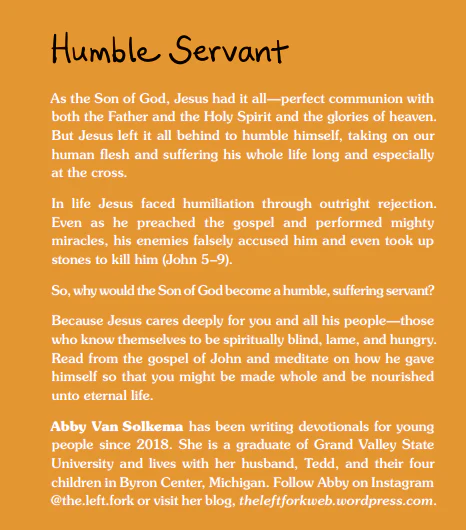The nativity story is the message of salvation for, in the words of the Nicene Creed, “Jesus Christ, the only-begotten Son of God … for us men and for our salvation, came down from heaven, and was incarnate by the Holy Ghost of the Virgin Mary, and was made man.” Jesus was born for our salvation!
Follow the inspired evangelists, Matthew and Luke, as they relate the wonderful events that surround the birth and early childhood of Jesus Christ. Marvel at the announcement of the angel Gabriel. Rejoice with Mary, Elizabeth, the unborn John and Joseph. Trace the steps of Mary and Joseph to Bethlehem, where the Saviour is born. Listen to the heavenly song of the angelic host as they announce the gospel to lowly shepherds. Meet patient Simeon and aged Anna in the temple, and hear Simeon’s mysterious prophecy of Christ’s rejection. Make the long trek from the east with the wise men who eagerly seek Him that is born King of the Jews. Enter the palace of ruthless King Herod and witness his satanic enmity against the newborn Saviour. Flee with Mary, Joseph and Jesus to Egypt to escape the king’s wrath. Observe Jesus’ childhood development in Nazareth and, finally, accompany Jesus to the temple in Jerusalem in His twelfth year, where He must be about His Father’s business.
“Born for our Salvation is being much blessed to me. Pondering on the dire poverty of Christ’s birth and that He suffered great trials throughout His life and then suffered the penalty for our sins has put my ‘light afflictions’ into the right perspective.” – England
[Reviewed by Rev. Jonathan Langerak, pastor of Heritage Protestant Reformed Church in Sioux Falls, SD]
With delight this new book by author Martyn McGeown, missionary-pastor of the Limerick Reformed Fellowship, is heartily recommended to the reading public!
In this new publication, the author addresses what by his own confession is “the greatest miracle in history”: the incarnation, birth and childhood of our Lord and Saviour Jesus Christ (1).
The format of the book’s twenty-one chapters clearly show they began life as sermons preached by the author to the saints of the Limerick Reformed Fellowship in Limerick, Republic of Ireland. Each chapter consists of three sections (one has two) that state, prove, explain and apply the Word of God in the gospel narratives in Matthew 1 and 2, and Luke 2, where the truth of the birth and childhood of Christ is revealed.
The book exhibits the exegetical excellence, clarity of expression and beautiful simplicity that we have come to expect from this writer in his other volumes, also published by the RFPA. In this book, he applies these gifts to the explanation of the truth we confess in the Apostles’ Creed: “I believe in Jesus Christ … conceived of the Holy Ghost, born of the Virgin Mary.” Rev. McGeown’s book is no sappy, sentimental cooing over the birth of a baby in Bethlehem. Repeatedly he warns against such a view of Christ’s birth: “The nativity story must never be a sentimental story for us. The Son of God could easily have arranged better circumstances for himself.” Rather, Rev. McGeown explains the nativity and childhood of Christ as “the first step of Christ’s humiliation, which is his lowly birth. This is the first step that Jesus took in our salvation and the first step that would lead to his death on the cross” (2). The author draws our eyes of faith from the manger to the cross, whose shadow already fell over the stable of Bethlehem. The incarnation served the cross!
The book is based on exegesis expounding the meaning of the Scriptures. We get wonderful exegesis, not only of the gospel narratives which reveal the incarnation and childhood of Christ, but also of the Old Testament prophecies which are fulfilled in the events of these chapters, An example is Rev. McGeown’s explanation of Hosea 2 and 3 in chapter 17, “God’s Son Called Out of Egypt.”
On the basis of exegesis, the author also engages in polemics. Many of them are against the heresies of Rome, especially Rome’s exaltation of Mary: Rome’s corruption of the Creed of Chalcedon’s teaching that Mary is the “God-bearer” (25), the immaculate conception of Mary and Mary as co-redemptrix with Christ. Rev. McGeown opposes the popular notion of any kind of well-meant gospel offer in the song of the angels in Luke 2:12, reminding us, “The song is God centered. The angels sing of God’s purpose … What a wonder of grace: the Savior is born, to the glory of God, according to God’s good pleasure, and as proof of God’s goodwill, to bring us peace” (105, 107).
Gabriel is therefore favored with making the most wonderful announcement the world has ever heard: the long-awaited Savior is to be born. We can well imagine Gabriel standing in the presence of God—in the presence of God whom he loved, adored, and worshiped. Long had Gabriel pondered the ways of God, for 1 Peter 1:12 reveals that the angels “desire to look into” the things of salvation. Suddenly, Gabriel receives a commission from the Almighty. First, Gabriel must make an announcement to Zacharias the priest and then, six months later, Gabriel must make an announcement to Mary (5–6).
Even though he engages in “sanctified imagination,” Rev. McGeown repeatedly reminds the reader that the purpose of God’s revelation in Scripture, now, particularly, concerning the birth of His Son in our flesh, is not to satisfy our curiosity but to lead us to magnify the incomprehensible works of God. Concerning Gabriel’s explanation in Luke 1:35 to Mary’s question as to how she would conceive “seeing I know not a man,” Rev. McGeown writes, “That is the only explanation that Gabriel gives. Beyond that we cannot go, for this is a wonder, a wonder of grace. God does not present it for our analysis, but for our adoration. Let us therefore worship the wonderworker of it, who is the Holy Spirit” (22).
At the same time, Rev. McGeown helps us to be conscious of the fact that the events of the birth of the Son of God in our flesh—which we often take for granted as we read them—caused chaos in the lives of those involved and that this too was for us! In chapter 5, “An Angelic Dispelling of Joseph’s Fears,” on Matthew 1:18–25, Rev. McGeown gently admonishes us, “We sometimes get quite sentimental about the nativity narratives. But we must remember that this is real human history, not a romantic fairy tale, and that the men and women involved in this history had their lives turned upside down” (60). Regarding the many angelic appearances—to Mary, the shepherds—that took place, the author says, “Sometimes, we are tempted to be envious of these men [i.e., the shepherds], but we should notice their reaction, and learn from it … If you want the living daylights scared out of you, by all means, desire an angelic visit. God will not grant your request, but you should at least understand what it would mean” (91). How many of us does this not convict?
In order to live up to its title Born for our Salvation, Rev. McGeown must bring out the gospel in all the events of Christ’s birth. This he does, repeatedly and beautifully. To mention a few: in his explanation of the name Jesus in chapter 5; in his reminder that “the baby Jesus cannot save us except by becoming the crucified and risen Jesus” (84); in reminding us in connection with God calling His Son out of Egypt that Jesus’ suffering in this flight was “because of our sins” (219) and that “through Jesus’ perfect obedience, his atoning sufferings and death, and his resurrection, God calls us out of Egypt also” (224). “Let us not dwell too long on the manger. Instead, let us lift our eyes to the cross, for it is not in the manger, but in the cross and in the empty tomb of the resurrected Lord, where our salvation is found” (84).
What is our reaction to the wonders of the nativity and childhood of Jesus Christ? Rev. McGeown calls us to wonder, adore and magnify the name of God, the God of salvation, the God who is with us in Immanuel. “We must stand in awe of this word of God” (20). “Let us adore the mystery of the birth of the Son of God” (84).
We see from the angels’ song what is important to angels and should be important to us. Their first words are “Glory to God in the highest” (Luke 2:14). Something, declare the angels in song, has happened in Bethlehem that reveals and displays the glory of God, and we have come to sing about it. And you should sing about it, too (100)!
[Reviewed by Rev. Stephan Regnerus, pastor of Lynden Protestant Reformed Church in Lynden, WA]
Rev. McGeown’s latest book, Born For Our Salvation: The Nativity and Childhood of Jesus Christ, sets forth the rich and comforting history of the birth of Jesus Christ. We are all familiar with the narrative. So, the question may legitimately be asked, What is the value of a book recounting the birth of Jesus Christ? Allow me to give several reasons why I found the book enriching and why I believe that you, the reader, will also be blessed by it.
The book is comforting. The first part of the title is suggestive of this reality. Jesus was born, not to be a spectacle on this earth, not simply to admonish and correct the evildoer, but he was born for our salvation. In Jesus’ conception and birth, the Christian is given the hope that he will be delivered from his sins and the curse due to him for those sins. From the first chapter to the last, the book teaches in a warm and personal way the gospel truth that Jesus is the spiritual deliverer of God’s people.
The book is doctrinal. To be sure, the book does set forth the history of Jesus’ birth and it does so in vivid fashion. McGeown writes regarding the nativity scene, “Mary gave birth amidst filth and squalor … No cradle was prepared; no nursery was decorated; no toys were laid out; no soothing music was played; no beautiful clothes were made ready for the babe to be dressed. Instead there were animals, dung, and vermin to greet the newborn” (80). But the book goes beyond recounting the history of Jesus’ lowly birth; it also teaches the doctrines of Jesus’ condescension and incarnation. In a day when many Christian books are filled with personal anecdotes and lengthy, distracting illustrations, Rev. McGeown’s book sticks carefully to God’s Word, explaining and applying Scripture throughout. The maps that he includes are helpful. The outstanding strength of Born For Our Salvation is its faithful commentary on the inspired Scriptures.
The book is polemical. That is, it exposes and refutes false doctrines, which false doctrines would be used by the devil to deceive the very elect, if possible. Many Christians respond to false doctrine in one of two wrong ways. Some Christians pride themselves on being compassionate and tolerant, but are largely unwilling and unable to defend the truths of Scripture. Other Christians are eager to defend and even argue about doctrine, but lack the wisdom to do so in a loving manner. Born For Our Salvation walks the middle road; it uses the sword where necessary but not as an end to itself. It is evident that the author has intimate knowledge of Roman Catholicism, for many of the polemics refute Catholicism, against whom the true church is engaged in battle to this day.
Finally, the book corrects commonly held misunderstandings about the birth of Jesus. For example, McGeown writes, “You can be sure that, contrary to sentimental hymns, [baby Jesus] cried. How else would he indicate that he was hungry or dirty?” (81). Further, the author exhorts the reader not to romanticize the birth of our Saviour: “We sometimes get quite sentimental about the nativity narratives. But we must remember that this is real human history, not a fairytale, and that the men and women involved in this history had their lives turned upside down” (60).
I recommend Born For Our Salvation. McGeown’s writing style is clear; his exegesis is sober; his applications are convicting and edifying. People of all ages, from young adults to elderly saints, will find the book understandable and encouraging. I trust God will use this book for the furtherance of His kingdom and the glory of His holy name!










